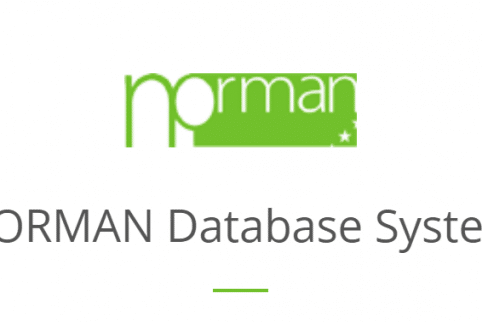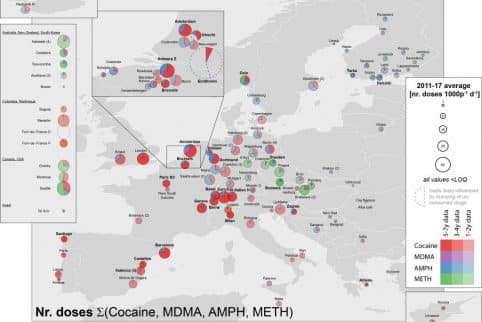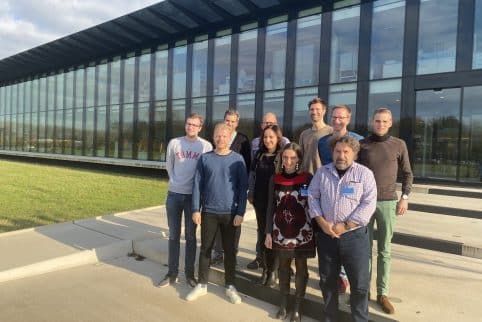About the EuSeMe Project and its goals
Europe is an important market for illicit drugs and the consumption of these substances is linked to high human and social costs, which affect public health and safety, the environment as well as labour productivity. The EU Drugs Strategy 2013-2020 has among its objectives to contribute to ‘… a better dissemination of monitoring, research and evaluation results and a better understanding of all aspects of the drugs phenomenon and of the impact of interventions in order to provide sound and comprehensive evidence-base for policies and actions.’ EUSEME (Europe-wide Sewage analysis to Monitor Emerging drug problems) aims to provide insights into new trends and potential threats
Current situation
Needs to Address
New psychoactive substances (NPS) are increasingly available that often replicate the effects of controlled drugs, and are typically marketed as legal alternatives to them because they are not subjected to similar control measures. The Commission Communication "Towards a stronger European response to drugs", adopted in October 2011, identified NPS as one of the problems requiring a firm response at the EU level. To effectively reduce the availability of harmful NPS, it is necessary to cover NPS by criminal law provisions (Brussels 17.9.2013 COM2013 619 final).
Estimating the prevalence of use of NPS continues to present challenges, especially through general population surveys. In some cases, such as with the synthetic cannabinoids, there is a clear discordance between seizures and the levels of use reported in surveys. During 2013 the EMCDDA continued to work with its partners on ways to strengthen epidemiological methods and indicators related to the use of NPS. This includes exploring the development of indicators based on waste water analysis New report: assessing illicit drugs in wastewater. EMCDDA presents latest advances in monitoring illicit drugs in wastewater.
Project Objectives
The 5 objectives for EuSeMe. Once we reached these objectives, the project will be halted.
Approach
How will we reach the set goals for EuSeMe?
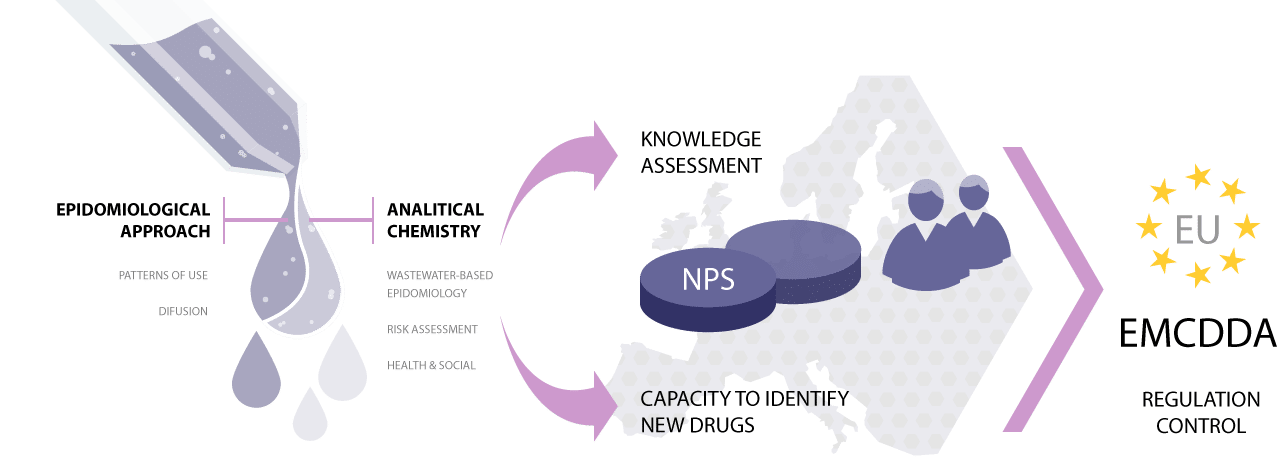
Outcomes
Data about new biomarkers will provide a unique overview of cannabis consumption, as well as emerging threats linked to the consumption of NPS, illicit and prescription opioids, and crack cocaine. The generated data will be relevant to individual EU member states and the European Commission to assess the need for both immediate and future measures. Furthermore, the exchange of data between these countries and the dissemination of the results through the EMCDDA and the SCORE network (www.score-network.eu) will benefit cross-border cooperation between EU member states and beyond.
KWR Water Research Institute, Nieuwegein (the Netherlands). (KWR)
KWR is a leading research institute in the water sector and long-lasting and internationally reowned expertise. KWR currently collaborates in the field of WBE with the Netherlands Forensic Institute (NFI), local and national police. KWR will be mainly responsible for conducting a literature review to identify additional crack cocaine biomarkers/pyrolizates, the development of methods for the analysis of relevant crack cocaine biomarkers in wastewater and the analysis of aliquots collected through the planned sampling campaigns. KWR will also play a role in the other work packages.
The Mario Negri Institute for Pharmacological Research, Milan (Italy). (MN)
MN is a non-profit organization for research, education and information on medical sciences. MN has a long experience in WBE and developed several different applications. MN will have a specific role focused on the issue of NPS and opioids (both illegal and prescription) by identifying biomarkers of illegal/synthetic opioids in urine and wastewater and develop methods for the analysis of NPS and prescription opioids in wastewater. MN will also play a role in the other work packages.
The Research Institute for Pesticides and Water of the University Jaume I, Castellon (Spain). (UJI)
UJI develops an intense research activity in the areas of analytical chemistry and hydrogeology. UJI will have a key role in refining the estimations of cannabis consumption through wastewater, in particular by studying the sorption of different biomarkers specific for cannabis and the possible role of suspended solids in wastewater. UJI will also play a role in the other work packages.
The Toxicological Centre of the University of Antwerp (Belgium). (UA)
UA has extensive knowledge in (bio)chemical analyses and forensic toxicology. UA will play a central role in the organization and coordination of the two Europe-wide sampling campaigns. In particular, UA will be responsible for managing the logistic aspects of the campaigns, communication with laboratories, data collection, interpretation and visualization. UA will also contribute in the other work packages.
News & Publications
SCORE – NORMAN joint initiative to facilitate data comparison between “sars-cov-2 in sewage” studies Since the outbreak of the Covid19 pandemic, wastewater research groups around the world have been rushing to collect influent wastewater samples. This time-critical activity is particularly challenging as many laboratories are under lock-down and, with no standard sampling protocol or analytical…
Read More »Within Watershare, we develop new insights and technologies to quantify the occurrence, the sources, the behaviour and the risks of emerging compounds in the water cycle. EuSeME (Europe-wide Sewage analysis to Monitor Emerging drug problems) is a project funded by the European Union’s Justice Programme’s Drugs Policy Initiatives. EuSeME aims to further develop Wastewater-Based Epidemiology…
Read More »The partners of the EUSEME project came together on 19 and 20 November for the kick-off meetings. Researchers from KWR, the Istituto di Ricerche Farmacologiche Mario Negri in Milan, the University of Antwerp and the Universitiy Jaume I in Castellón de la Plana came together for a two-day meeting. Delegates from the European Centre for…
Read More »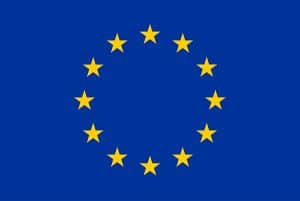
This project has received funding from the European Union’s Horizon 2020 Justice Programme under grant agreement Nr 861602.


